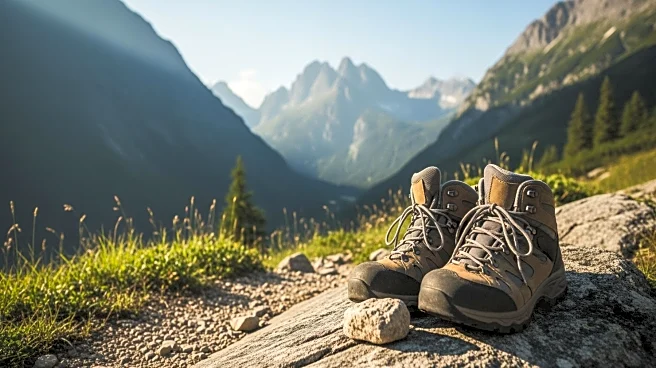What's Happening?
President Donald Trump has pardoned Michelino Sunseri, a trail runner who briefly took a prohibited trail during his record-setting run up and down Grand Teton in Wyoming. Sunseri completed the challenging
13.3-mile run, gaining 7,000 feet in elevation, in 2 hours, 50 minutes, and 50 seconds. However, he faced a misdemeanor conviction for leaving a switchback to avoid hikers, which is considered harmful due to potential erosion. Prior to the pardon, Sunseri was set to complete community service and a wilderness stewardship course as part of a deal with prosecutors. The pardon has rendered this agreement moot.
Why It's Important?
The pardon highlights ongoing debates about the criminalization of minor offenses in national parks. Sunseri's case has drawn attention to concerns about 'overcriminalization' of such infractions, which can have broader implications for park management and visitor regulations. The decision to pardon Sunseri, described as apolitical, may influence future discussions on how minor offenses are handled in protected areas. It also underscores the importance of balancing environmental protection with recreational activities, as national parks continue to attract visitors seeking outdoor challenges.
What's Next?
The pardon may prompt further examination of policies regarding off-trail activities in national parks. Stakeholders, including environmental groups and park authorities, may engage in discussions to address the impact of such activities on park ecosystems. The case could lead to revisions in park regulations to better accommodate recreational activities while ensuring environmental preservation. Additionally, the pardon may influence public perception of national park policies and enforcement practices, potentially affecting future legislative actions.
Beyond the Headlines
Sunseri's pardon raises questions about the ethical considerations of pardoning minor offenses, particularly in the context of environmental conservation. The case may spark discussions on the role of presidential pardons in addressing non-political issues and their impact on public trust in legal processes. It also highlights the cultural significance of national parks as spaces for both recreation and conservation, prompting reflection on how these dual roles can be balanced effectively.









